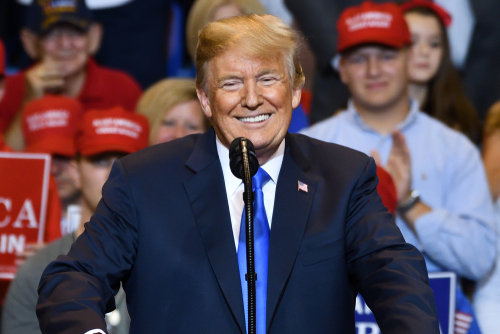Donald Trump again commits to declining the presidential salary for his next term, marking a continuation of his fiscal discipline and public service priorities. By not accepting the $450,000 annual salary, he aims to support various nonprofits and federal agencies. This decision reflects his dedication to impactful governance and societal contribution. But what exactly does this mean for those organizations? And how did his previous donations make an impact?
Trump’s Salary Refusal
President-elect Donald Trump has confirmed he will again forgo the presidential salary, a promise initially made during his 2015 campaign. Highlighting fiscal responsibility, he declined the salary during his first term. Historical precedent indicates that George Washington may have made a similar choice, but Trump asserts that he is the only modern president who has followed this path. This decision excludes him from the presidential pension, which some argue displays fiscal commitment.
https://twitter.com/VerifyThis/status/1866399987661230193
In recent remarks, Trump highlighted this salary commitment: “The President gets about $450,000 a year, and I didn’t take it. By the way, I got no credit for that. That’s ok.” Although recognition may be lacking, Trump’s actions communicate his governance priorities.
https://twitter.com/VerifyThis/status/1865154283148038526
Beneficiaries of Trump’s Donations
During his first term, Trump directed quarterly salaries to support various government initiatives. 2017, the Department of Veterans Affairs and the Department of Education received allocations. Subsequent years included donations to the Department of Homeland Security and the National Park Service for monument restoration. This funding aided projects struggling under budget constraints, highlighting Trump’s intent to contribute directly to national improvement efforts.
Trump demonstrated a personal connection to his donations in 2018, supporting federal research into alcoholism—a cause close to him due to his brother’s struggles. Trump aims to bolster organizations that reflect his values and national priorities through targeted contributions.
A Commitment Amid Speculation
Trump’s salary donation represents a unique fiscal approach in modern American politics. While some suggest his wealth allows for such gestures, allocating these funds similarly sparks conversations about wealth and public service expectations. Questions arise about the impact of this practice continued beyond Trump’s administration, potentially changing the perspective on presidential financial responsibilities.
Despite differing opinions, Trump’s actions spotlight the potential for significant personal contribution to societal and governmental support efforts. Continuing to divert the presidential salary signifies an enduring pledge to affect positive change where resources might otherwise fall short.
Sources:
- Donald Trump to Refuse Presidential Salary Again
- Ten actions that hurt workers during Trump’s first year: How Trump and Congress further rigged the economy in favor of the wealthy | Economic Policy Institute
- A Tale of Two Executive Orders: Biden and Trump Ethics Commitments for Executive Branch Personnel | Covington & Burling LLP
- CFPB and FHFA on List of Agencies to See Course Change Under Trump
- Trump Congratulates Businesses for Helping Fight Coronavirus. But His Own Company Has Been Absent. — ProPublica

